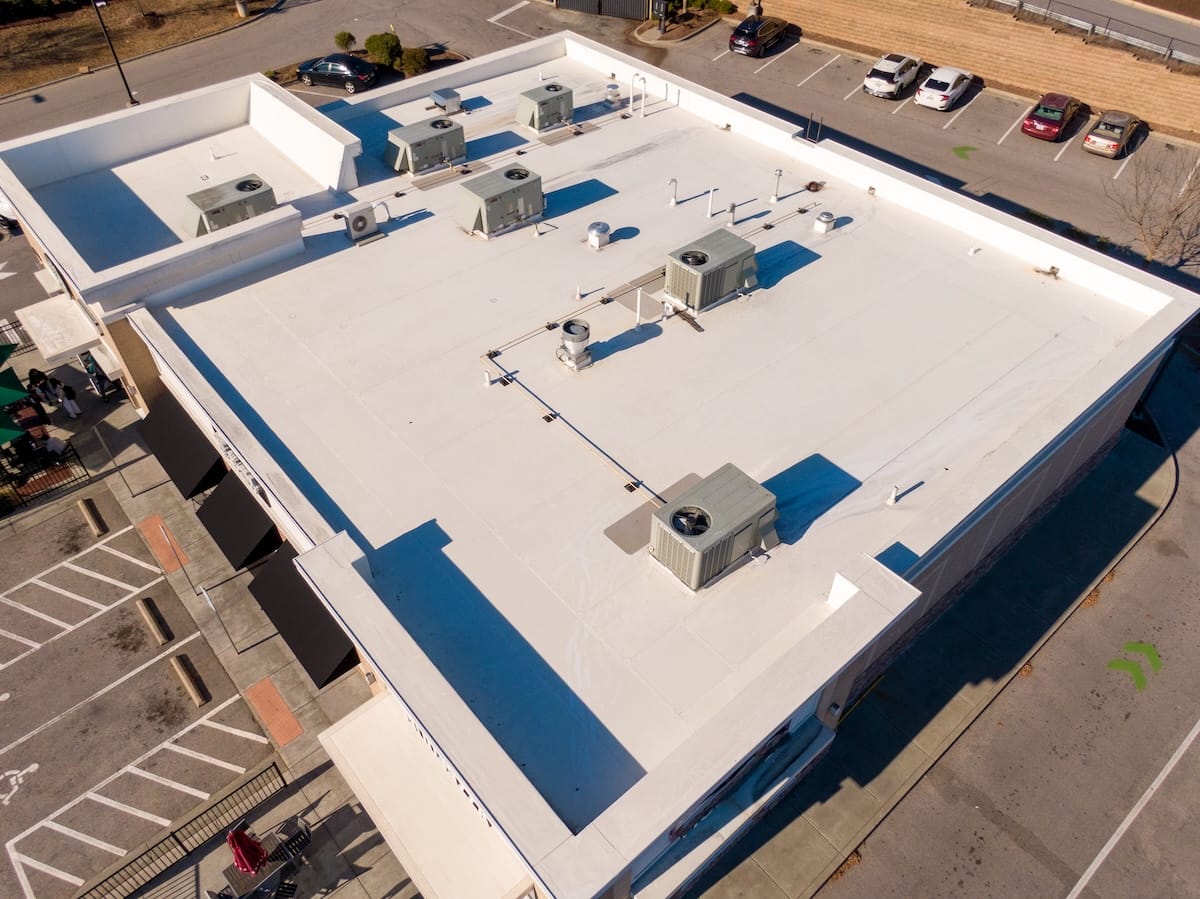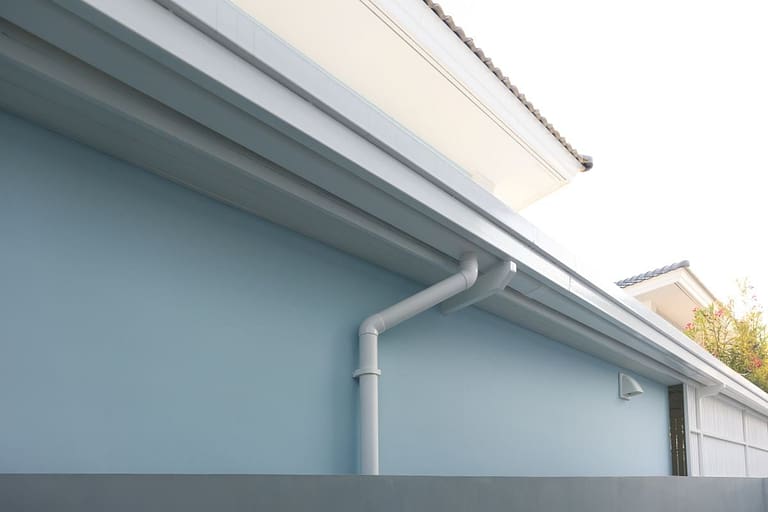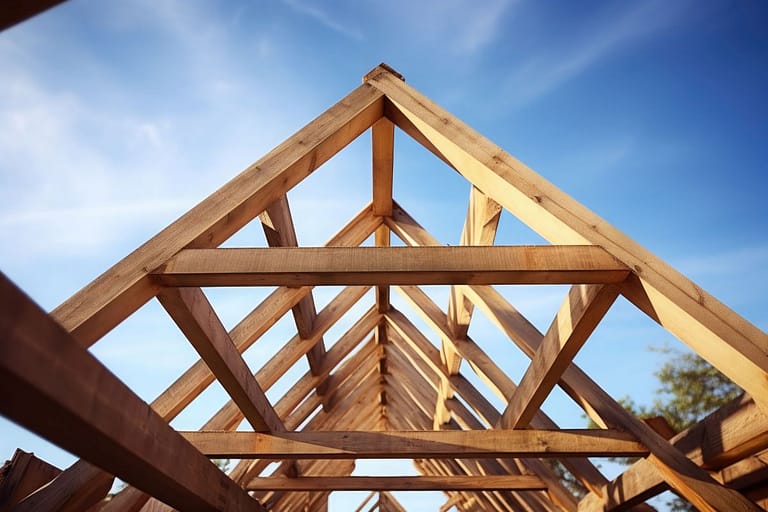A commercial flat roof is one of the most important structural elements protecting your business property. It shields against weather, insulates energy systems, and affects the overall durability and efficiency of your building. Understanding your material options, average installation, and key maintenance practices helps you make smart, long-term roofing decisions that protect your investment.
In this guide, we’ll cover:
- Types of commercial flat roofing materials: How each option performs.
- Maintenance best practices: How to extend your roof’s lifespan and prevent damage.
If you manage or own property in Chester County, this guide will help you navigate your next commercial roofing project with confidence and clarity.
Understanding Commercial Flat Roof Systems
Flat roofing systems are popular in commercial construction because of their practicality, energy efficiency, and cost-effectiveness. Unlike steep-slope roofs, they provide easy access for HVAC units, solar panels, and drainage systems.
Advantages of Flat Roofing for Businesses
- Ease of maintenance: Simple to inspect and repair compared to pitched roofs.
- Energy savings: Reflective membranes reduce heat absorption, lowering cooling costs.
- Space utilization: Rooftops can accommodate mechanical equipment or even green roof installations.
- Durability: Modern flat roofing materials can last decades with proper care.
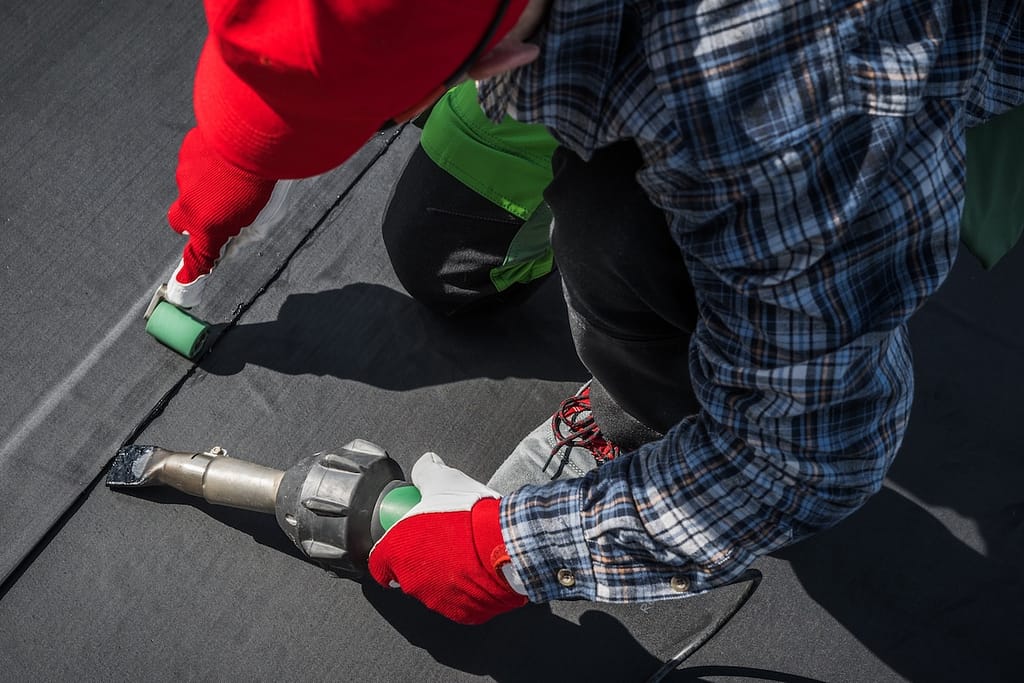
Common Commercial Flat Roofing Materials
Each roofing material has distinct benefits and maintenance requirements. Choosing the right one depends on your budget, building design, and performance goals.
| Material Type | Expected Lifespan | Description |
| EPDM Rubber | 25–30 years | Synthetic rubber membrane that’s durable and weather-resistant |
| TPO | 20–30 years | Reflective single-ply membrane with strong energy efficiency |
| PVC | 25–35 years | Heat-welded seams for superior waterproofing and chemical resistance |
| Modified Bitumen | 20–25 years | Asphalt-based rolls reinforced with fiberglass or polyester |
| Built-Up Roofing (BUR) | 20–30 years | Multiple layers of tar and gravel for strength and insulation |
EPDM (Ethylene Propylene Diene Monomer)
EPDM is one of the most affordable and proven commercial flat roof options. It’s a single-ply rubber membrane known for flexibility, UV resistance, and low maintenance.
- Pros: Cost-effective, easy to repair, and resistant to temperature extremes.
- Cons: Dark color absorbs heat, potentially increasing cooling costs in warm climates.
- Best for: Warehouses, office buildings, and industrial facilities.
TPO (Thermoplastic Polyolefin)
TPO has become one of the most popular flat roofing materials for commercial use due to its balance of cost and energy efficiency.
- Pros: Reflective white surface reduces energy bills; highly resistant to punctures.
- Cons: Some low-quality products have shorter lifespans; professional installation is critical.
- Best for: Retail buildings and facilities with high cooling demands.
PVC (Polyvinyl Chloride)
PVC is a premium flat roofing option offering exceptional chemical and moisture resistance. It’s ideal for restaurants or factories where oils or chemicals may be present.
- Pros: Long lifespan, heat-welded seams, and superior waterproofing.
- Cons: Higher initial cost compared to TPO or EPDM.
- Best for: Food service and industrial facilities requiring strong chemical protection.
Modified Bitumen
This asphalt-based material is reinforced with fiberglass or polyester layers for strength and flexibility.
- Pros: Strong resistance to punctures and foot traffic; proven waterproofing.
- Cons: Requires proper sealing and routine maintenance to prevent cracking.
- Best for: Small commercial buildings and properties with moderate budgets.
Built-Up Roofing (BUR)
BUR systems use alternating layers of asphalt and fabric, topped with gravel or stone for protection.
- Pros: Long-lasting, durable, and highly resistant to weather damage.
- Cons: Heavier than other systems, which may require roof reinforcement.
- Best for: Older commercial structures and multi-layer insulation projects.
Maintenance Best Practices for Commercial Flat Roofs
Routine maintenance is essential to maximize your roof’s lifespan and prevent leaks. A well-maintained flat roof can last decades, while neglected systems often fail prematurely.
Annual Inspections
Have your commercial flat roof professionally inspected at least once a year, ideally before winter or after major storms.
- Leak detection: Identify small punctures or seam separations early.
- Flashing check: Ensure roof edges, vents, and drains remain properly sealed.
- Drainage evaluation: Clear debris and confirm water is flowing off the roof efficiently.
Regular Cleaning
Keeping your flat roof clean helps prevent clogs, ponding, and premature wear.
- Debris removal: Clear leaves, dirt, and twigs that can trap moisture.
- Drain maintenance: Inspect scuppers and downspouts to ensure proper water flow.
- Surface protection: Use gentle cleaning methods to avoid damaging the membrane.
Prompt Repairs
Minor damage can quickly lead to major issues if left untreated.
- Patch small holes: Repair punctures with compatible materials.
- Address pooling water: Persistent standing water weakens membranes over time.
- Re-seal seams: Maintain watertight seams to prevent infiltration.
Professional Maintenance Programs
Many roofing contractors offer scheduled maintenance plans for commercial properties.
- Scheduled visits: Routine inspections help identify issues before they escalate.
- Detailed reports: Documentation supports insurance claims and compliance requirements.
- Budget forecasting: Predictable maintenance costs reduce unexpected repair expenses.
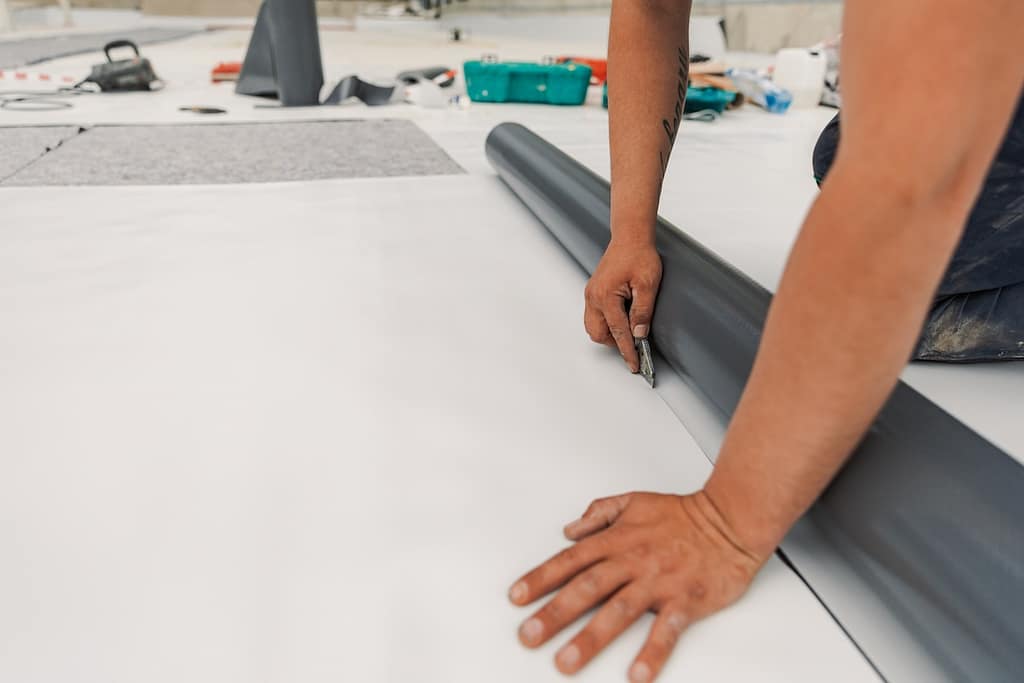
Environmental and Energy Efficiency Benefits
Modern flat roofing systems offer strong environmental advantages, which can reduce operational costs for businesses.
- Cool roof technology: Reflective coatings lower indoor temperatures and HVAC usage.
- Recyclable materials: Many single-ply membranes are recyclable at the end of their lifespan.
- Solar readiness: Flat roofs are ideal for installing solar panels to further reduce energy expenses.
6 Signs Your Commercial Flat Roof Needs Replacement
Even a well-maintained commercial flat roof will eventually show signs of wear. Recognizing these indicators early helps you plan necessary repairs or replacements before serious damage occurs.
- Frequent leaks: Persistent water intrusion indicates failing seams or deteriorated membranes.
- Visible cracking or bubbling: Blisters form when trapped moisture expands beneath the surface.
- Excessive ponding: Standing water after rainfall suggests drainage issues or sagging insulation.
- Rising energy bills: Damaged roofing materials can compromise insulation and airflow efficiency.
- Loose or damaged flashing: Compromised flashing allows water to enter vulnerable roof edges and penetrations.
- Worn surface coating: Fading, peeling, or thinning coatings reduce UV protection and accelerate material breakdown.
Why Chester County Businesses Choose O’Donnell Roofing Co.
For commercial flat roofing projects in Chester County, business owners trust O’Donnell Roofing Co. Our team brings decades of experience with installation, repair, and maintenance for all major flat roofing systems.
- Certified expertise: Skilled in TPO, PVC, EPDM, and built-up roofing installations.
- Custom solutions: Tailored roofing plans designed for your building’s needs and budget.
- Long-term partnerships: We work closely with property owners to protect assets year-round.
From small offices to industrial facilities, we provide reliable, energy-efficient roofing systems that deliver performance and peace of mind.
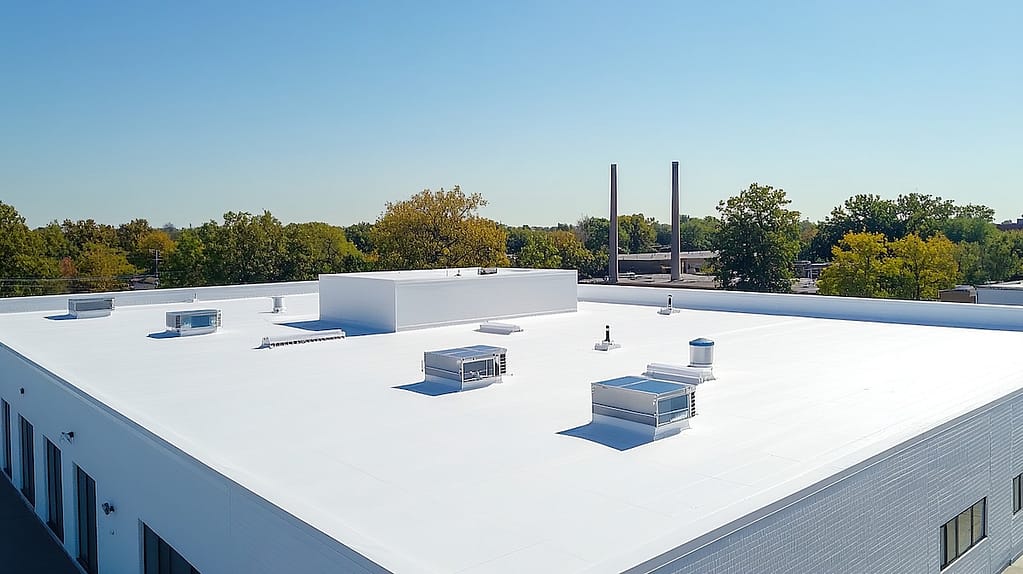
Protect Your Business with Proven Roofing Solutions
A commercial flat roof is more than a structural necessity—it’s a long-term investment in your property’s protection and energy efficiency. By choosing the right materials, scheduling regular maintenance, and partnering with a trusted contractor, you can extend your roof’s lifespan and minimize future costs.
If you’re a property owner in Chester County, contact O’Donnell Roofing Co. today for a free commercial roof inspection and estimate. Our experts will help you choose the ideal flat roofing solution to safeguard your business for years to come.
